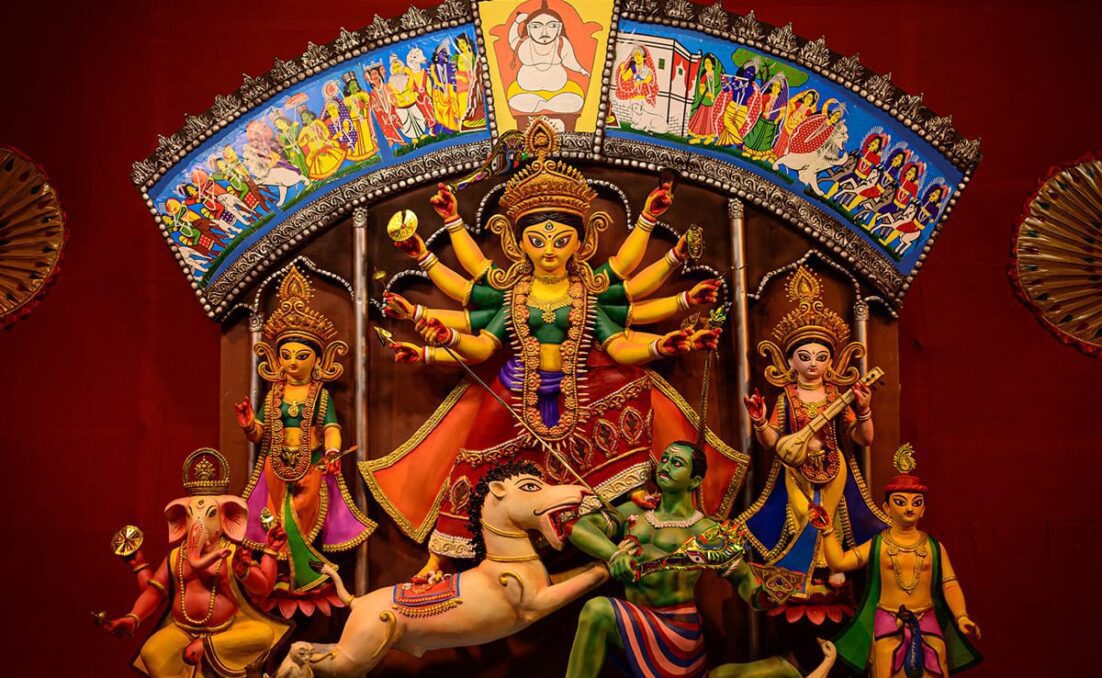She is the fierce and powerful form of the Divine Mother, representing the destructive energy that is necessary for creation.
Significance of Navami
- Destruction of Evil: Navami is celebrated to commemorate Mahakali’s victory over the demon Mahishasura, symbolizing the triumph of good over evil.
- Feminine Empowerment: The festival honors the feminine divine and celebrates the power and strength of women.
- Spiritual Awakening: Navami is believed to be an auspicious day for spiritual practices, meditation, and seeking blessings from the Divine Mother.
How Navami is Celebrated - Puja and Offerings: Devotees offer prayers and perform puja to Mahakali, seeking her blessings and protection.
- Fasting: Many people observe a strict fast on Navami, abstaining from food and water as a form of devotion.
- Bhajan and Kirtan: Devotional songs and hymns are sung in praise of Mahakali, creating a spiritual atmosphere.
- Dandiya Raas: In some regions, Navami is celebrated with traditional dance forms like Dandiya Raas, symbolizing the cosmic dance of creation and destruction.
Symbolism of Mahakali - Dark Color: Mahakali is often depicted in a dark or blue hue, representing the night and the unknown.
- Fierce Form: Her fierce form, with open mouth and raised sword, symbolizes her power to destroy evil.
- Three Eyes: The three eyes represent the past, present, and future, signifying her omniscience.
Navami is a significant day in the Hindu calendar, honoring the divine feminine energy and celebrating the triumph of good over evil. It is a time for spiritual reflection, devotion, and seeking the blessings of the powerful goddess Mahakali.












